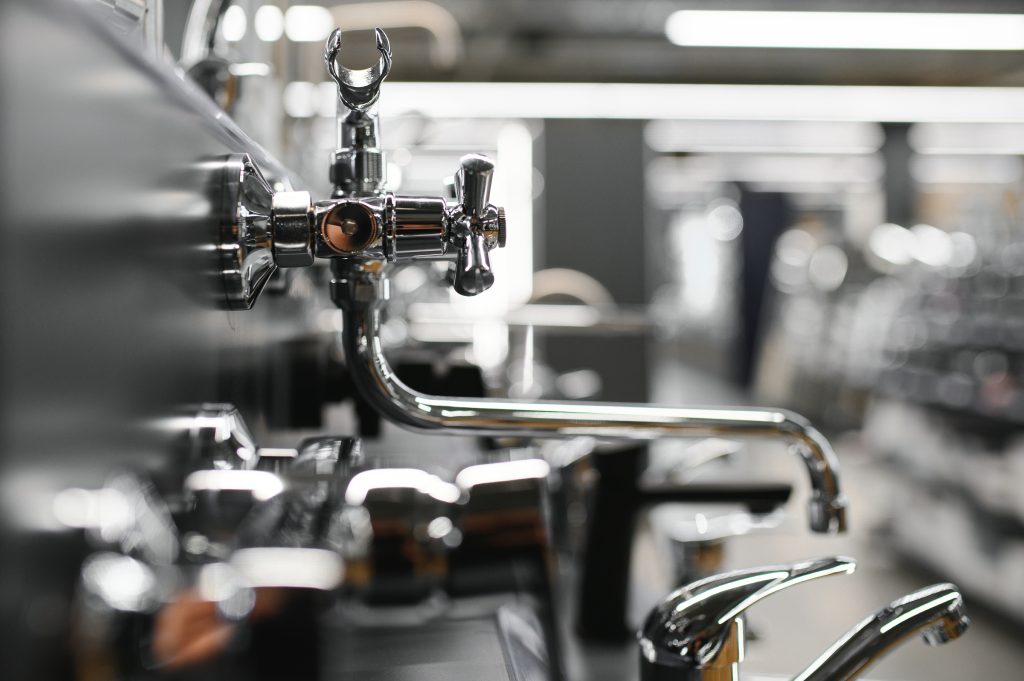Commercial Plumbing
Commercial Plumbing in Toronto

Plumbing for Commercial Kitchens, Restaurants, and Office Buildings in Toronto
Plumbing services for commercial kitchens, restaurants, and office buildings are essential to ensure the smooth operation of businesses. Whether it’s a high-traffic restaurant kitchen, a busy corporate office, or a multi-functional commercial facility, having a reliable plumbing system is critical for daily operations. Commercial plumbing differs from residential plumbing in its scale, complexity, and compliance with specific codes and standards. Businesses need expert plumbing solutions tailored to their unique needs, and that’s where a professional plumbing service can make a significant difference.
Understanding the Needs of Commercial Kitchens
A restaurant kitchen or commercial kitchen has unique plumbing needs compared to typical residential setups. With high water usage, multiple fixtures, and the need to comply with health and safety regulations, these kitchens require a plumbing system that can handle the demands of continuous use. Whether it’s installing and maintaining grease traps, ensuring proper water supply, or setting up complex drainage systems, every aspect must be optimized for efficiency.
Grease traps are particularly important in restaurant kitchens because of the large volumes of grease and oils used in cooking. When not properly managed, grease can build up in the plumbing system, leading to blockages, foul odors, and even health code violations. Regular installation, cleaning, and maintenance of grease traps are essential to keep the system running smoothly. In addition, commercial kitchens often require heavy-duty plumbing fixtures like commercial-grade sinks, dishwashers, and waste disposal units, which need to be installed correctly to avoid malfunctions during peak hours.
Proper drainage is another critical factor. Commercial kitchens produce large amounts of wastewater, which must be efficiently drained to avoid flooding, backups, or clogs. An effective plumbing system ensures that wastewater is properly removed, preventing disruptions in kitchen operations. This is especially important in a fast-paced environment where downtime could result in loss of business. Regular maintenance and inspections are crucial to identify and fix any issues before they escalate.
Plumbing for Office Buildings
Office buildings have different yet equally complex plumbing requirements. These spaces often include multiple bathrooms, break rooms, and sometimes kitchen areas, all of which need to be properly equipped and maintained to ensure a comfortable working environment for employees. From water supply lines and fixtures to efficient drainage systems, the plumbing needs of office buildings require careful planning and execution.
One of the main concerns in office buildings is ensuring a steady water supply to all floors. Water pressure issues can arise when there are multiple stories or a large number of water fixtures in use. Maintaining consistent water pressure is essential for employee comfort and productivity, whether it’s for using the restroom, washing hands, or filling a cup of water in the break room. Installing pressure regulators and maintaining water supply lines is an important aspect of office plumbing that cannot be overlooked.
Restroom facilities in office buildings are heavily used, especially in high-traffic areas. Toilets, sinks, and urinals must be reliable, and any issues like leaks or clogs should be addressed immediately to avoid inconvenience to employees and visitors. Furthermore, water-efficient fixtures can help reduce the overall water consumption of a building, contributing to sustainability efforts and lowering utility bills. Many modern offices opt for eco-friendly solutions like low-flow toilets and motion-sensor faucets to reduce water wastage.
Health and Safety Considerations
Commercial properties must comply with specific building codes and regulations to ensure the safety and health of their occupants. This is particularly important for plumbing systems, which must meet certain standards for water quality, drainage, and wastewater management. A professional plumbing service ensures that all installations and repairs meet the required legal codes, which helps avoid costly fines or disruptions to business operations.
For example, businesses such as restaurants must meet local health regulations concerning water supply, drainage, and waste disposal. Regular inspections are mandatory, and plumbing systems must pass health code inspections to remain in operation. Failure to comply can result in business closures or hefty fines. Similarly, office buildings must adhere to safety codes, particularly in terms of preventing water damage or mold growth, which can affect the health of the occupants.
Emergency Plumbing Services
Unexpected plumbing issues can happen at any time, and businesses need to be prepared. Whether it’s a burst pipe in a commercial kitchen, a severe leak in an office building, or a clogged drain affecting multiple restrooms, immediate action is required to minimize damage and disruption. Emergency plumbing services are available 24/7 to address these urgent issues quickly and efficiently. The ability to respond to emergencies in a timely manner is critical in commercial settings, where downtime can lead to lost revenue or, in the case of restaurants, dissatisfied customers.
In Toronto’s harsh winters, frozen pipes can also become a significant problem in commercial buildings. Preventive measures, such as pipe insulation and regular maintenance, are essential to avoid freezing and bursting, which can cause extensive damage and costly repairs. Commercial properties need plumbing experts who understand how to winterize systems to prevent these common cold-weather problems.
Preventive Maintenance
A proactive approach to plumbing maintenance is essential for commercial kitchens, restaurants, and office buildings. Routine inspections, regular cleaning of drains and pipes, and prompt repairs can prevent larger issues from arising. Businesses that invest in preventive maintenance can avoid the hassle and expense of emergency repairs, downtime, and potential property damage.
Commercial properties often use complex and high-volume plumbing systems that require specialized care. This includes ensuring that grease traps are regularly cleaned, water heaters are functioning efficiently, and all fixtures are in good working order. With the demands placed on these systems, it’s important to have a preventive maintenance plan in place to extend the lifespan of the equipment and minimize interruptions to business operations.
Tailored Plumbing Solutions for Businesses
Every business has unique needs when it comes to plumbing. Whether it’s a bustling restaurant kitchen in downtown Toronto or a multi-level office building with hundreds of employees, the plumbing system must be tailored to meet the specific requirements of the facility. A professional plumbing service offers customized solutions to ensure that each business gets the care and attention it needs.
From installation and repairs to ongoing maintenance and emergency services, the goal is to provide reliable plumbing that keeps businesses running smoothly. With the right expertise, businesses can avoid costly plumbing issues, maintain compliance with health and safety regulations, and provide a comfortable environment for employees and customers.
In conclusion, ensuring proper plumbing in commercial kitchens, restaurants, and office buildings is essential for smooth operations. Tailored services, regular maintenance, and quick responses to emergencies help businesses avoid costly disruptions and keep everything running efficiently.
FAQs
Commercial plumbing refers to plumbing services and systems in business and commercial buildings, such as office complexes, hospitals, schools, and restaurants. It involves larger, more complex systems designed to handle higher usage and often includes specialized equipment like industrial water heaters and backflow prevention devices.
The main difference between commercial and domestic plumbing is the scale and complexity. Commercial plumbing serves large buildings with multiple occupants and involves more durable systems and strict codes. Domestic plumbing is for individual homes and focuses on smaller, simpler installations for personal use.
Commercial plumbing supports businesses like offices and stores, providing plumbing for public restrooms, kitchens, and other areas. Industrial plumbing serves facilities involved in manufacturing or processing, often requiring specialized systems to handle high-pressure flows, chemicals, and waste, and adhering to stricter regulations due to the nature of the work.
